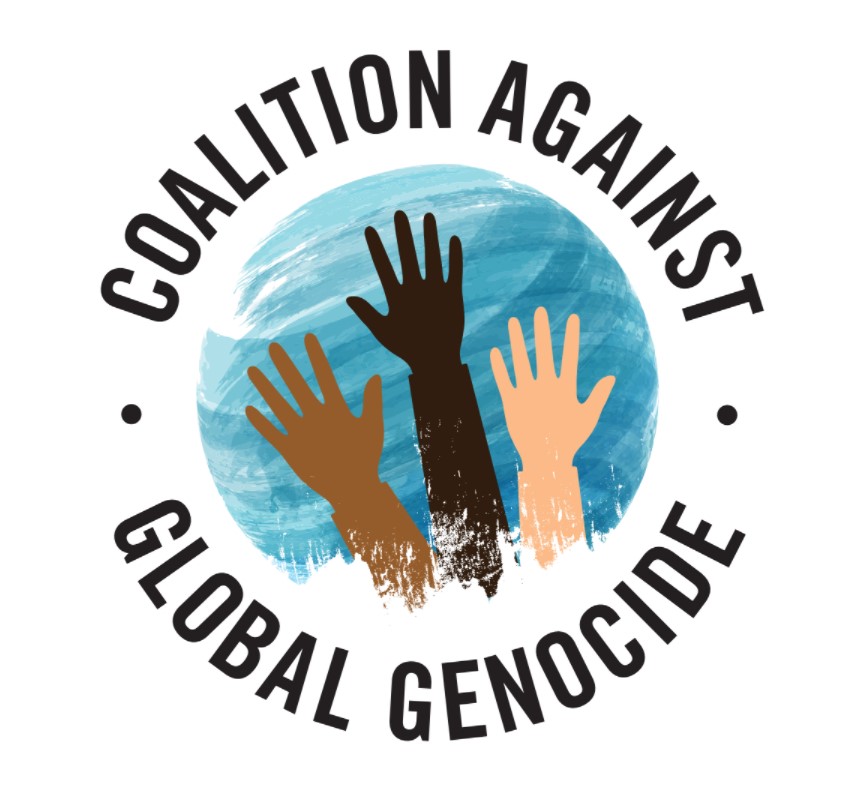Last month in honor and recognition of Genocide Awareness and Prevention Month, the Coalition Against Global Genocide called upon fellow clergy and friends of faith to participate in an annual Sermon Weekend. The weekend served not only as a time to reflect on all the lives lost to genocide, but also as an opportunity to drive awareness and educate congregations about the atrocities that have occurred in modern history with the hope that together, we can put a stop to it.
This is the mission of the Coalition Against Global Genocide, which was founded in 2006 by Roz Duman, who is also the organization’s executive director. In a recent interview with Dr. Pius Kamau, Duman recounts the origins of the Coalition and recalls how she previously worked as a scheduler for Patricia (Pat) Schroeder, the first female U.S. Representative elected from Colorado. Duman reflects on a particular moment when Schroeder was asked by a group of Jewish women to speak about how Israeli doctors went to Cambodia to help the victims of genocide.
She recalls sitting there thinking, “What is she talking about? A genocide? In Cambodia?” She notes how she thought that because after the Holocaust, world leaders said “Never Again,” that these words and commitment had been true.
It was in this moment she realized they were not.
Genocide was still happening and in fact, it was from the Armenian genocide that Hitler learned how to orchestrate the Holocaust, meaning the Holocaust, though widely known, was neither the beginning nor the end of genocide.
She felt strongly that if she was unaware of this, many others were, too; that needed to change. This was the catalyst for the creation of the Coalition Against Global Genocide, the realization of Duman’s dream to create “an organization that would help make people aware of what’s happening in the world with genocide and crimes against humanity and teach them what actions they could take to make a difference.”
The Coalition’s podcast series, Never Again furthers the organization’s mission of educating the masses about genocide and invites subject matter experts to share their knowledge and experience regarding various crimes against humanity.
Tying back to Duman’s revelation about the Cambodian genocide and the fact that so many other people across the world were likely also unaware of its occurance, the Coalition highlighted it as a topic for a podcast interview last month in honor of Genocide Awareness and Prevention Month.
In the episode, Peter Van Arsdale, an American anthropologist, author, and retired director of African Initiatives at the University of Denver, discusses the unfortunate fact that genocide is not a thing of the distant past.
Van Arsdale recalls meeting a Cambodian man back in 1992 at a conference in Houston who had survived the Cambodian Genocide. The man’s name was Haing Ngnor. Van Arsdale spoke to him extensively about his experience prior to, during, and following the genocide, and wrote about it in his book, Global Human Rights.
During the episode, he reads an excerpt from the book and shares the details of Ngnor’s life. He also discusses his own experience studying genocide and explains why the month of April was chosen for Genocide Awareness and Prevention Month.
When asked why genocide occurs, Van Arsdale states there are multiple reasons including the intent to eliminate difference, the intent for political domination, religious interplay, and structural violence.
“Fear enables genocide,” says Van Arsdale. “Two words keep coming back to some of us who work in this field: justice and dignity. Justice—making things right, not just for a person but for a group of people. And then dignity—the individual dignity we must respect. If any person’s dignity was respected there’d never be genocide, dignity goes with autonomy, but sadly dignity and autonomy are not respected.”
This lack of respect along with humanity’s tendency to hold long-standing grudges creates an ongoing environment in which genocide can occur. That’s why we must speak openly about it, bring awareness to it, and leverage education to drive action.
In the words of Internationally Acclaimed Holocaust and Anti-bullying Educator and Speaker, Karen Zauder Brass who appeared as a guest on another episode of Never Again, “We must not be silent in the face of oppression or discrimination.”
She discusses how she coined the term “standupster,” defining it as a person who takes action in a situation rather than simply standing by to watch. “Instead of being a bystander,” she states in the interview, “I ask students and adults alike, to be a standupster in their actions.”
Barbara Coloroso, an international bestselling author and educator echos this
sentiment in her closing remarks of her aforementioned interview and emphasizes the importance of taking action to stop genocide.
We have to say “Wait a minute, what can I do?” We can get overwhelmed and say, “I can’t do anything.” But we can’t do that, we can’t lose hope. We have to say is it donating? Is it standing up? If I’m a writer can I write about it? Can I speak out? And also look every day to see what’s tainting our thinking and what’s polluting our culture.
No matter who we are, all of us have the ability to stand up against genocide. How we go about it may look different for everyone, but even the smallest action can make a difference. To learn more about the various ways you can become an advocate, visit: https://www.coagg.org/

